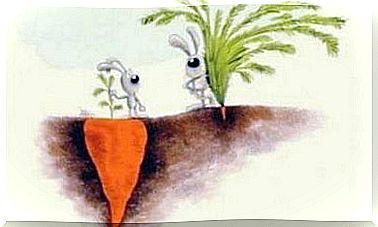Pablo Neruda And Silence: The Art Of Uniting With Goodness

Staying In Silence by Pablo Neruda is probably one of the most beautiful poems ever written. In it, it encourages us to remain still and silent for at least a moment. It is an invitation to the participation of being through nature. It is finding ourselves with our essence to embrace goodness and respect, letting each messy piece return to its place.
The theme of silence is undoubtedly a recurring dimension in the field of psychology, we know. However, we cannot overlook the value it has always had in the artistic and literary disciplines. Claude Debussy used to say that silence is what remains between one note and another. It is it which, in its own way, gives greater strength and beauty to any musical composition.
Borges, for his part, expressed in one of his poems the beauty and depth contained in silence as a revealing dimension, where we can remember who we are and what we love. In this cultural legacy of poetic and musical compositions, the message that Neruda addressed to us with his ode To remain silent emerges for various reasons. It is an invitation to remain motionless, to stop the gear of our machinery and the sense of artificial and empty humanity, to remind us of what really matters.

Pablo Neruda and silence as a teaching
People, on average, hate silence in the same way that nature hates emptiness and rushes to fill it with bushes everywhere. Silence feeds our imagination, but it also makes us fall into the abyss of anxiety, into the whirlwind of worries. We are not used to this scenario, as our cities are not, always animated by the mechanical murmur of cars, by shops that never close or by sleepless industries.
We have forgotten that silence has power, it is didactic and, as if it were a spell, it is capable of reinforcing our aspects that we thought were extinct. Pablo Neruda in his poem evokes a song to joint reflection, regardless of our language. He advises us, as we sometimes do with children, to count to twelve and remain silent.
So it’s time to stop and stop anything, he tells us. It’s time to stay still, just for a moment, leaving your arms down, to immerse ourselves in this dimension that is sometimes so uncomfortable that it is silence. Allowing ourselves to be captured by this mild stillness, by this space between note and note that Debussy was talking about, perhaps we will realize what we are doing with our life. And with the world .
“Now we will count to twelve
and we will all stand still.
Once in a while on the face of the earth,
we don’t speak in any language;
let’s stop for a moment,
and don’t gesticulate so much.
What a strange moment it would be
without bustle, without engines;
we would all be together
in a sudden extravagance.
In the cold sea the fisherman would
not attack the whales
and the man who collects the salt
would not look at his injured hands.
Those who prepare new wars,
wars with gas, wars with fire,
victories without survivors,
would wear clean clothes
to walk with their brothers
in the shadows, doing nothing.
What I want should not be confused
with total inactivity.
This is life that it is about …
If we weren’t so committed
to keeping our lives in motion
and for once we did nothing,
perhaps an immense silence would interrupt the sadness
of never being able to understand each other
and threatening us with death.
Perhaps the earth can teach us,
like when everything in winter seems dead
and then proves to be alive.
Now I will count to twelve
and you will be silent and I will go away ”.
Nature as a synonym of goodness
Silence is a therapeutic tool that is often underestimated and that we should all make more use of. Silences are a way to rearrange thought, this space where we can better understand others, learning to be more compassionate and closer to those around us. Because silence allows us to listen and also to see with greater delicacy and attention.

Pablo Neruda with his poetry gives us a naturalization of silence. It reminds us of this connection with the earth as an approach to our authentic being. Because there are no locomotives, there is no rush and no wars are orchestrated. What is natural is in turn primordial, this origin to which we connect from time to time to re-establish our priorities, to calibrate our gaze and direct it towards what is really important.
Silence is, in this beautiful poetic composition, a creative breath that encourages us to exist in another way. Thanks to which we understand ourselves better, be more transparent and respectful. Few cultural legacies contain so much strength in a few verses, these that we should remember more frequently to give shape to a more beautiful, dignified and positive reality for all.
So let’s do it, let’s count to twelve and stay silent. Let us be embraced by it.









